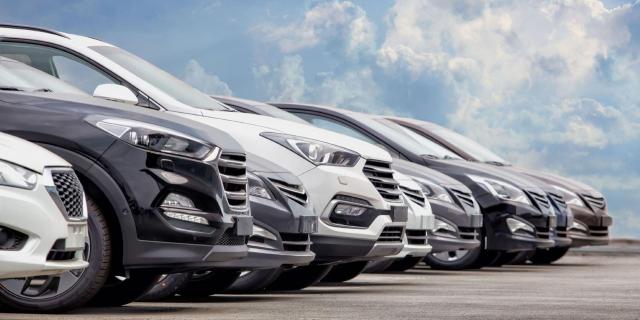Arval Online Debat: 'From Car Policy to Smart Mobility Policy'
On 17 September, lease company Arval organised an online debate 'From Car Policy to Smart Mobility'. The latest results of the Arval Mobility Observatory barometer were discussed with a panel of experts. Each year, the barometer provides new insights into the development of company fleets and mobility in the medium and long term. At the round table, the main topic remained the energy transition.
Although the car continues to play an important role, there is a great awareness that we need to evolve to a combination of mobility solutions. In Business & Decision, this is happening at full speed. Among other things, the company converted part of the car park into a bicycle park. But this evolution and transition needs to be facilitated. According to Tine Vangrunderbeek, Fleet Manager at Business & Decision, the Cash4Car was an interesting track. ‘We inserted it last year, but unfortunately it only existed for one year. Initiatives like this need to run longer in order to be able to study and implement them thoroughly. Now we are looking at the federal mobility budget, but this also takes time’.
The greening of the company car fleet is inevitable. This was also confirmed by the leaked plans of the current coalition negotiations. By 2026, the fiscal advantage for company cars is said to disappear, with an exception for emission-free (electric) vehicles. In other words, the professional fleet would have to drive 100% electrically.
This tight timing was questioned by the panelists during the online debate. Xavier de Buck, director B2B at the Touring mobility organisation, finds the proposal difficult to realise because the infrastructure is still in its infancy. ‘A great deal still needs to be done in the field of loading bays in our country. This plan is utopian. We support the objective of greening the vehicle fleet, but that must be done in consultation with the sector’.
The path towards the greening and electrification of the company car fleet has been taken, but there is still a great deal of uncertainty about the timing and practical modalities of the measure. Very many companies have the ambition to become greener. The entire automotive sector is also ready to allow the professional vehicle fleet to evolve, but this must be done within reasonable timeframes. Philippe Khan, new mobility manager at Arval: ‘More time is needed to implement the federal mobility budget. It is still too limited due to different rules. If, for example, someone receives a promotion and also a company car, that person can only step into the mobility budget after a year. The offer on the market is also an important factor that should not be forgotten’.
‘The car will remain at the forefront. That is the reality of today and tomorrow’ according to Xavier de Buck. ‘It's not the car or something else, but the car and something else, for example the car and the bicycle.’ The 'and-and' story finds support on the other side of the table. Kristine Godin consultant at Arval Consulting: ‘Our clients ask us how they can best tackle greening. We use the SMaRT approach (link). Based on their CSR ambitions and driver profiles, we determine which mobility options (cars and alternative mobility) we can link to which employees and companies. 100% electric is not something we can impose on companies either’.
Because of Covid-19 many people started working from home, but this is a temporary phenomenon. ‘The demand for leased cars has not decreased. Globally, there are still as many cars as before, they just drive fewer kilometres’ according to Kristine Godin. ‘With the cafeteria plans the demand is still the same. People still use the car for their private needs such as holidays, shopping or their hobby. So if companies would no longer offer cars to their employees, the demand would simply shift to, for example, private leasing’.
There is consensus at the table. We now have to work out a plan with which we can still go in every direction. Philippe Khan: ‘That's why we are now working out mobility solutions at Arval on the basis of a mobility budget. This will give not only the employee, but also the employer more flexibility. Now everyone chooses a car with his or her full budget. In the future you can opt for a smaller car and use alternative mobility options’.
Always remember that this is an energy transition. Companies need to be given the opportunity to prepare themselves, to gain experience and that takes time. That is why we need to start discussions today, to make a constructive plan for greener professional fleets. But there are still many factors to be taken into account in these plans. What will happen in 2026 with technological progress, such as the driving range? And will that still be a determining factor, as it has been in recent years? Who is going to invest in these large budgets? The municipalities, the regions, the companies themselves?
Curious about the online debate? Watch the short video or the full debate in Dutch or in French!



